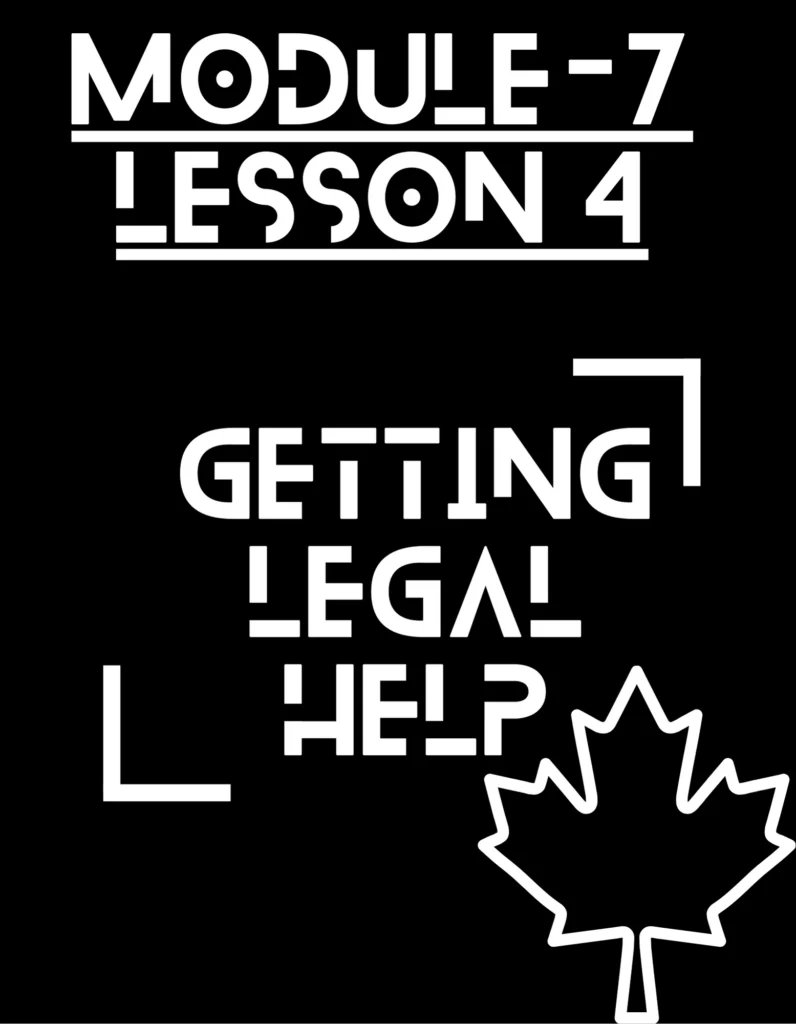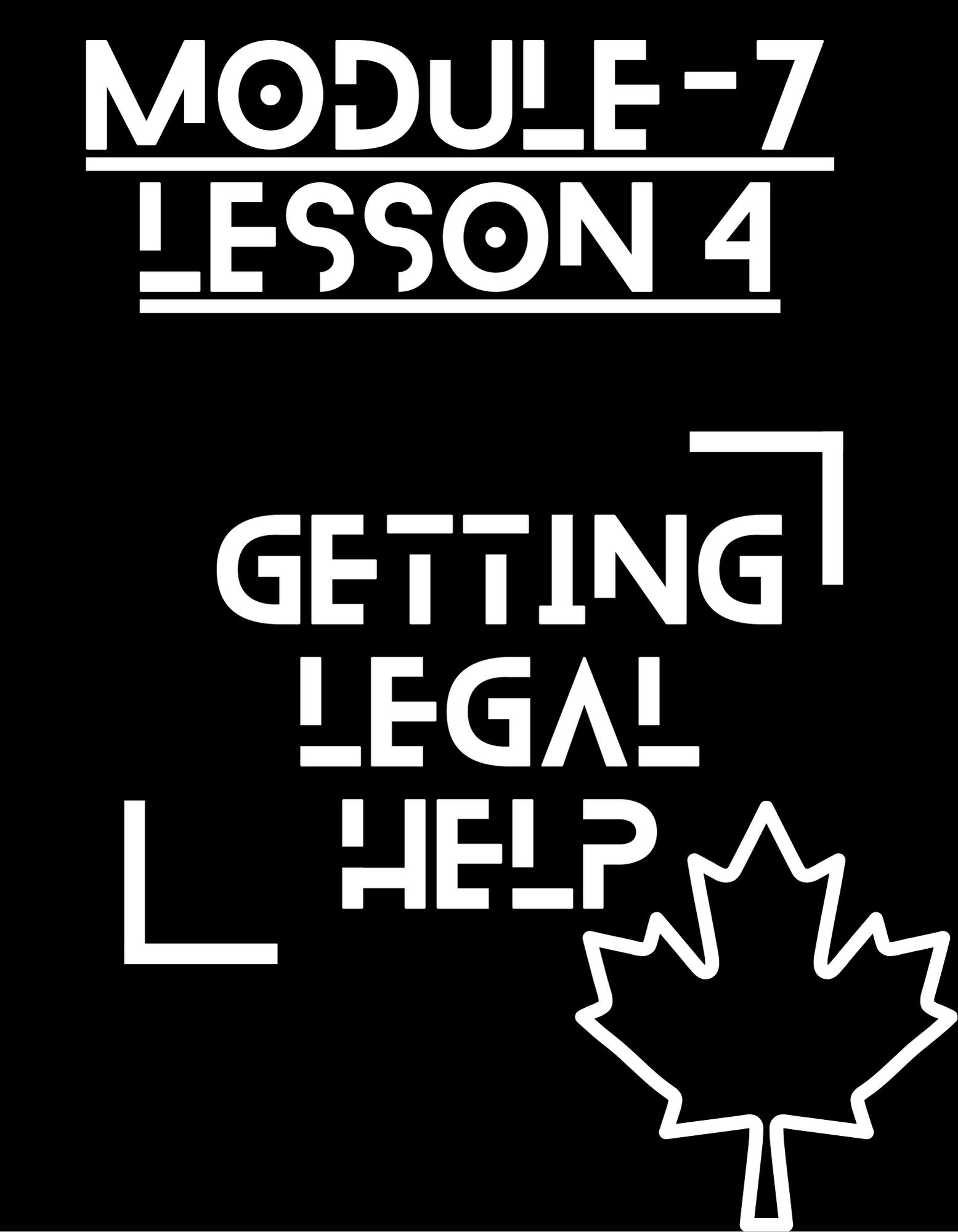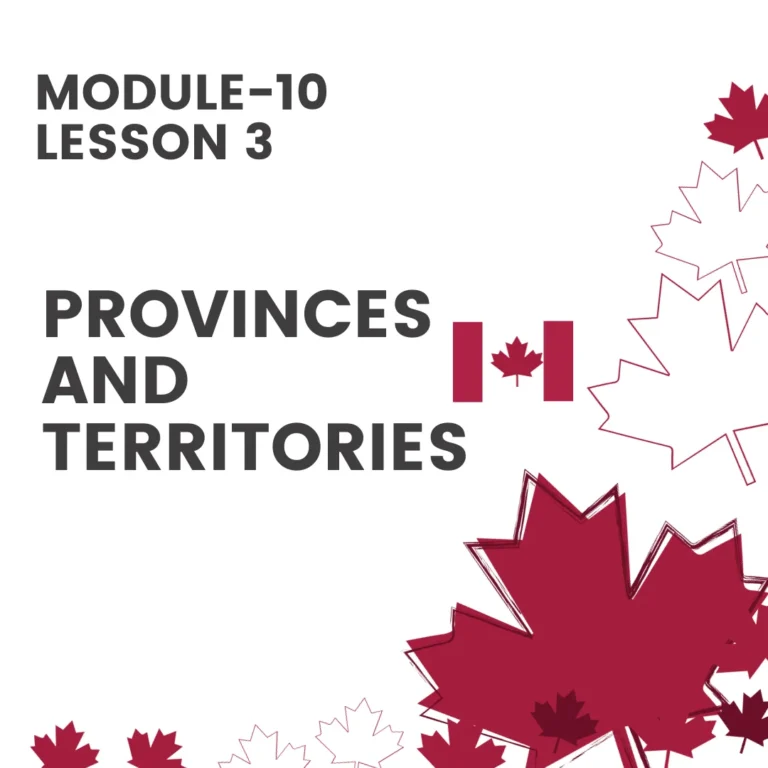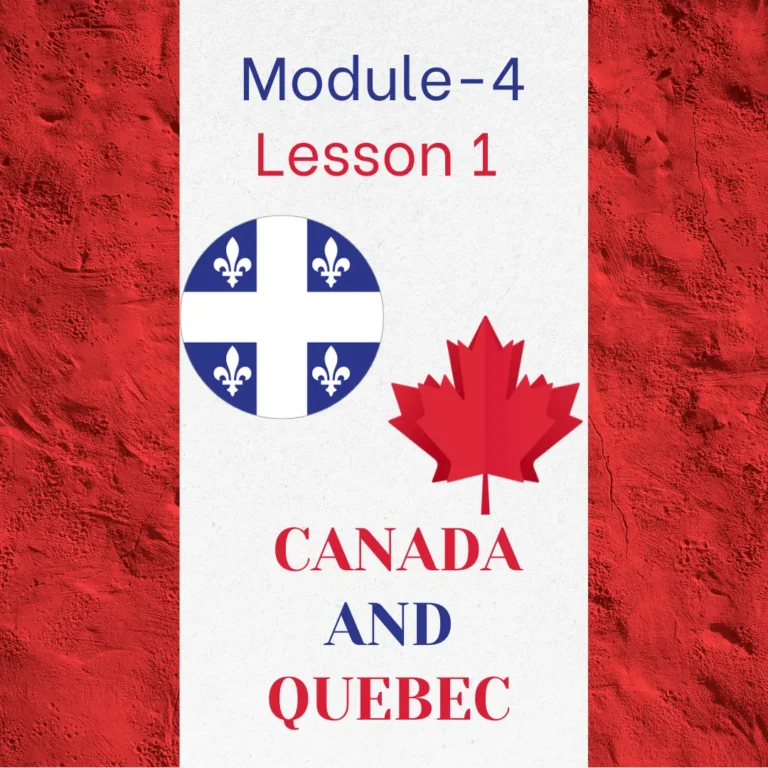Module-7 Lesson 4 Getting Legal Help
In any democracy, the right to access legal assistance is fundamental. Canada is no different. Canadian law is based on principles of fairness and justice. It provides individuals with avenues to obtain legal representation and assistance when facing legal challenges. The essay examines how individuals in Canada can get legal assistance. It includes legal aid, pro-bono, private lawyers, and new technologies.
Legal Aid Services
a. Overview: The role of legal aid in providing access to justice for those who can’t afford it is crucial. Legal aid organizations, both at the federal and provincial/territorial levels, provide financial assistance and support to those in need.
b. Criteria for Eligibility: The most common criteria used to determine eligibility is financial need. Every province and territory offers its own program of legal assistance with income and asset criteria. To qualify for assistance with legal aid, applicants must meet certain criteria.
c. Scope: The scope of services includes a broad range of legal issues including civil and criminal cases, immigration, family law, criminal defense. Services vary depending on the jurisdiction. However, there is a focus placed on representing marginalized or vulnerable groups.
Duty Attorney: Services of duty counsel are available in many courthouses for individuals who appear before the courtroom without legal representation. They can provide them with immediate advice and help. Lawyers who serve as duty counsel can provide guidance regarding legal procedures, plea choices, and possible outcomes.
Pro Bono Legal Services:
a. Law Society initiatives: Law society in Canada such as Law Society of Ontario or Law Society of British Columbia encourages and supports pro bono projects. In these programs, lawyers provide free legal assistance to those who can’t afford it.
b. Legal Clinics and Organizations: Many nonprofit and legal clinics in Canada offer pro bono services. Many of these initiatives target specific legal problems, like housing, employment or human rights. Lawyers who volunteer their time help people facing legal issues.
c. Clinics in Law Schools: In Canada, law schools operate clinics, where students provide free legal assistance to communities under the guidance of lawyers. The clinics have a double purpose: they provide practical training for law students and address the needs of populations that are underserved.
Private Practitioners:
a. Private Lawyers: Hiring a lawyer for private purposes is an option that many people can afford. Private lawyers offer many legal services from contract advice to court representation. Private lawyers offer individuals the chance to choose legal professionals who are experts in their particular area of concern.
b. Charges of Legal Services: The cost of legal services are determined by factors like the complexity of a case, experience, or the time needed. Lawyers can charge flat rates for certain services or contingent fees.
Emerging Technologies for Legal Assistance:
a. Online legal Resources: In the digital age, there are a variety of legal resources available online, including legal forms and information. Legal aid organisations, government websites and other reputable platforms provide a wide range of resources that can help people understand and navigate the legal process.
b. Legal Virtual Services: The use of virtual legal services has gained popularity, as it allows individuals to consult lawyers from a distance. Communication between lawyer and client is made easier with the help of video conferencing, online messaging, and email.
Legal Platforms that Use Artificial Intelligence: Certain legal platforms use artificial intelligence for automated legal support. AI and chatbots can be used to generate documents and answer legal questions. They also help people navigate legal processes. These technologies are not meant to replace personalized legal advice but rather, they aim to increase efficiency and accessibility.
Education in Community Law:
a. Seminars and Workshops: Programs for Community Legal Education are intended to educate individuals about their rights and obligations under the law. Legal professionals conduct workshops, seminars and information sessions to inform communities about various legal issues.
b. Self Help Resources: Community legal clinics and Legal Aid organizations often create self-help materials, such as guides, brochures, and educational material. These materials are intended to assist individuals in understanding legal procedures, preparing for court and addressing common legal problems without formal representation.

Conclusion:
The options for legal assistance in Canada are diverse, and reflect the country’s dedication to accessibility and justice. The Canadian legal system aims to provide individuals with the necessary support, whether through the traditional channels of legal aid or private practitioners, newer approaches like virtual services or community initiatives such as pro bono. In spite of challenges, reforms are ongoing, technology is improving, and collaboration amongst legal professionals has contributed to an inclusive, responsive, and more accessible legal environment. The commitment to equality, fairness and rule of law remain at the forefront as Canada develops. This reinforces the belief that the right to access justice is fundamental to all citizens.




